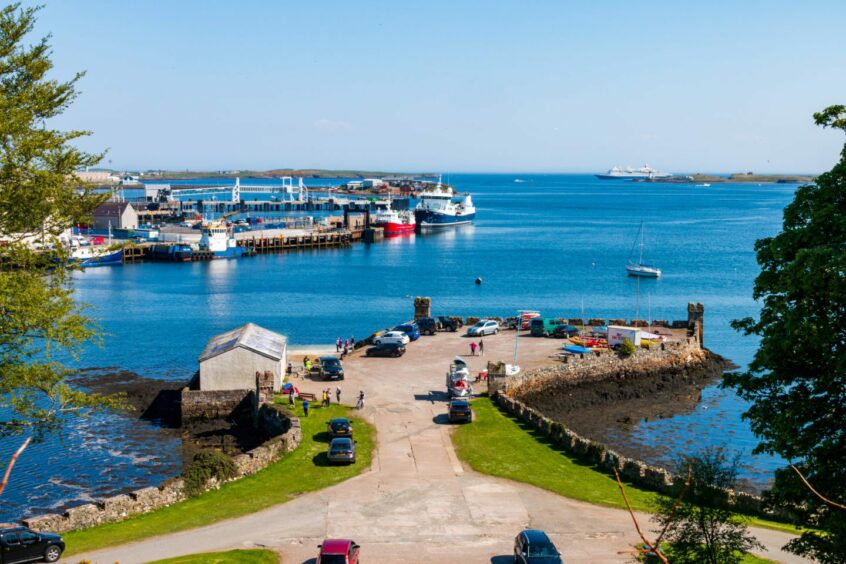
Last month, when the much anticipated announcement was made of winners and losers under the Contracts for Difference scheme, it seemed the 20 year struggle for the Western Isles to be connected for generation purposes to the National Grid had finally prevailed.
For years, the mantra from SSE, National Grid and Ofgem had been “guarantee sufficient capacity for a 600MW interconnector and we will approve it”. Last time round, two island projects qualified for CfD but remained stranded because the biggest one, Stornoway Wind Farm, did not.
This time that project’s developers, a partnership of EDF and Wood, were successful in gaining CfD status. For the first time in 20 years, the pieces of the jigsaw were about to be in place for an interconnector by 2027. What could possibly go wrong?
It took, quite literally, only a few hours to find out. That same day, a tome called ‘Pathway to 2030 Holistic Network Design’ was published by National Grid following, according to the blurb, “stakeholder engagement” with, among others, the Scottish Government and Crown Estate Scotland.
Sadly, that list did not include anyone directly involved in the Western Isles and none of the preferred “stakeholders” had troubled themselves to mention what was going on, presumably over many months. Yet the conclusions were dramatic in their impact. The goalposts had been moved to another playing field altogether without a word of advance notice.
Now – to accommodate offshore as well as on-island wind – there was to be a 1.6GW interconnector, with 2030 the pencilled-in date, news that came as a complete surprise to the local authority, developers and everyone else.
The Lord giveth and the Lord taketh away – or in this case, the anonymous forces which hold the fate of communities, industries and, to a significant extent, UK energy policy in their hands had found it beneath their dignity to consult with anyone directly affected by such a radical change in policy.
It is a story which dramatically illustrates the extent to which policy is made by people who are under no obligation to take account of social and economic factors beyond their narrow remits and who, in some cases, have massive vested interests in the outcomes. Government should not be allowed to sub-contract responsibility in this way.
The ‘Pathway to 2030’ is described as “a major step for Great Britain in delivering cheap, clean energy from offshore wind. It sets out a single, integrated design that supports the large-scale delivery of electricity generated from offshore wind, taking power to where it’s needed across Great Britain”.
That sounds great but the decision that the Western Isles is to be excluded from this happy state of affairs until at least 2030 should not be left to the aforementioned interests. For the islands to be allowed absolutely no part in that debate is a sad reflection of how little regard is paid to “stakeholder involvement” beyond a magic circle. That story is by no means unique to the Western Isles.
The ScotWind programme and its counterpart for England and Wales doubtless necessitates a parallel approach to ensuring that power generated can also be transmitted to where it is needed. But that objective should not be seen in isolation. These developments have the potential to be transformational for many communities. Involving them in discussions about their own fates is the least they are entitled to. Nobody voted for SSE, National Grid or Ofgem.
There is also the closely related issue of transmission charges which will help to determine which ScotWind projects actually happen. Since last year, Ofgem has been conducting a review of this whole system and particularly the differential between charges paid by generators close to the major markets as opposed to more distant ones where renewable energy capacity is greatest.
In an interim response, Ofgem said: “We acknowledge the concerns raised about the divergence between charges in the northern charging zones of GB versus those in the southern zones”. However, this “acknowledgement” which has taken 20 years to achieve is then so hedged with caveats that it gives little confidence that Ofgem is limbering up for radical change.
The transmission charges issue is complex and there has never been a great deal of evidence that it actually stops projects happening. Presumably the review will be looking for that kind of information to support the complaint, which appeals to basic fairness, that there should not be such a wide differential in the cost of getting power to market from various parts of the UK.
Once again, however, this should not be determined purely on the basis of whatever model the Ofgem economists come up with. There has to be political input and if it is the political will that the move towards renewable energy should be used as a significant tool in creating employment and other social and economic benefits in certain parts of the country, then no regulator should have the power to stand in the way.
That principle takes me back to the Western Isles. If a political decision had been taken 20-odd years ago that economic transformation could be achieved through recognition of renewable energy potential, that is exactly what would have happened. Instead, it was left to the regulators and vested interests, so next to nothing happened.
If we have learned anything from recent events, nationally and globally, it is that energy policy is too important to be left to “the market” which is the deeply flawed dogma that drives outfits like Ofgem. Governments need the power and courage to make decisions and the vision to take a broad view of why they are necessary.
Brian Wilson is a former UK energy minister
Recommended for you
